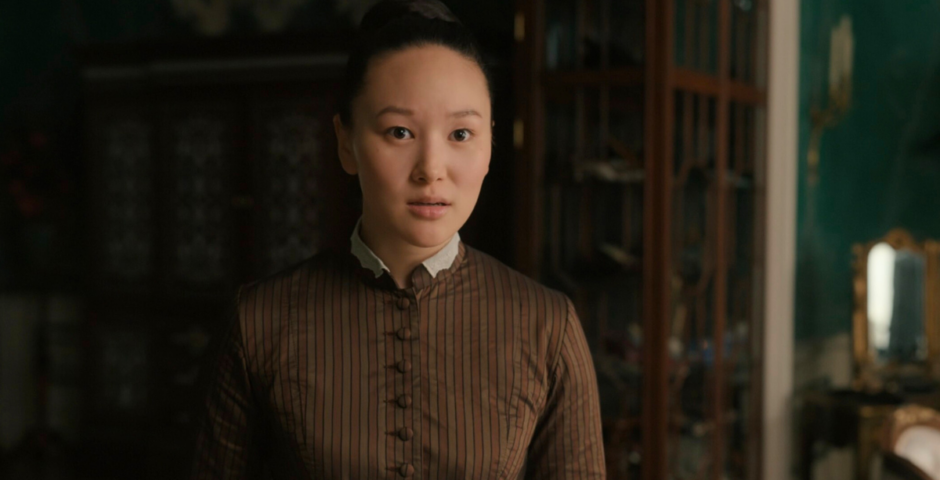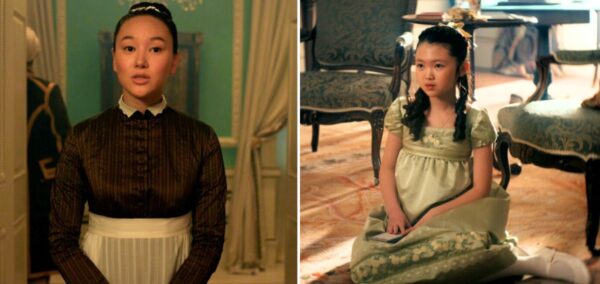
Review: Cyrano de Bergerac
A bold and confident production that immerses you in the action
It was clear from the start that this was not going to be like watching a normal play. The main character Cyrano (Jacob Benhayoun) stares out at the audience from the upper balcony of the auditorium before the lights have even gone out. Many of the other actors start sitting amongst the audience, chatting, and up to the left the musicians (led by musical director Tadahito Boyle) start playing the motif that would be repeated at many points throughout. I didn’t know whether to carry on having my conversation or if the play had already started.
This sense of immersion is very effectively carried through the whole production, and director Emma Dawes makes bold decisions that add an extra flair to the performance, making it more engaging and memorable. The stage is really not the limit in this production. Characters are introduced and action happens within the auditorium as a whole, but this never feels forced or tokenistic. For instance, Roxane (NP Zinger) leans on a pillar by the audience exit reading a book whilst speaking to Cyrano on stage. At times, the use of the wider context of the auditorium also added some funny twists. I’m thinking particularly of an inventive use of the stage curtain, but I won’t spoil this for you.

Image credit: Katie Burge
Most Read
Cyrano de Bergerac was originally written by Edmond Rostand in 1897. It is based on the life of the titular character, a French poet, novelist, letter-writer and military man who lived between 1619-1655. Cyrano is an intellectual man, good with words and deeply in love with Roxane who shares his love of poetry. However, he has a notably large nose, causing him to doubt himself and preventing him from professing his love. Instead, Roxane loves Christian (Eddie Adams), a new man in Cyrano’s military unit, who is too lost for words to match Roxane’s poeticism. Cyrano finds himself helping Christian and Roxane to get together, involving deception and testing ideas of loyalty and honour.
A good choice of script also helped make this production successful. Martin Crimp’s recent spoken word version of the play, the one chosen by the production, adds to the immersion and interest of the show. It not only makes it more accessible and relatable to young people but also lends a sense of energy that is carried through the length of the play. At no point did it lose my attention – something I can’t always say about student theatre, and whilst I usually make notes throughout to remember things to put in my review, as the play progressed I found myself increasingly engrossed and taking fewer and fewer notes. I think that is also a credit to the quality of the acting, particularly the leads NP Zinger (Roxane), Jacob Benhayoun (Cyrano) and Eddie Adams (Christian), who were compelling throughout.

Image credit: Katie Burge
The play had a good emotional range which, on the whole, was convincingly put across. I was particularly impressed with Eva Shepherd‘s (as Liniere) well-paced and emotional lines at a couple of points in the play, and I enjoyed the high energy parts of the show. The directorial decision to make the duel into a sort of dance across the stage was quite effective, and the group dancing section in low lighting was visually stunning.
Credit is due to the lighting designer (Peter Baker) and operator (Verise Cheung) for creating a myriad of different settings and atmospheres with just changes in lighting. The set design (by Flora Pizey) was simple but very effective. I especially liked the use of two microphones set up at the front of the stage as if the characters were speaking directly to the audience (despite them all being mic’d up individually). They were used for humorous effect at times, such as when Cyrano used the mic to call Christian from offstage.

Image credit: Katie Burge
The set and the lighting came together very effectively in a scene just before the interval where Cyrano and Christian are each at one mic and spotlighted. Christian, copying Cyrano’s words as he talks to Roxane, speaks into his mic whilst Cyrano lip syncs into his. Roxane then joins Christian at his microphone, by which point Cyrano himself begins to speak rather than speaking through Christian. At this point, the other spotlight turns off, and only Cyrano is illuminated onstage, speaking as if directly to the audience. This scene summed up the well-timed, and well-rehearsed way that the lighting, stage and acting came together in this production. Not only did it keep the audience entranced, but also added to the play’s themes of how wordplay makes appearances and identity not be what they seem.
Overall, this is a captivating production that will make you lose yourself in the story and forget that it’s the start of week six. As Cambridge students sometimes striving to sound clever and eloquent, it can be a reminder of the tragic nature of poetic sensibility but also an inspiration to not hold back your true colours.
4.5/5
Cyrano de Bergerac is playing at Fitzpatrick Hall, Queen’s College until 16th November. You can buy tickets here.
Featured image credit:Katie Burge




















